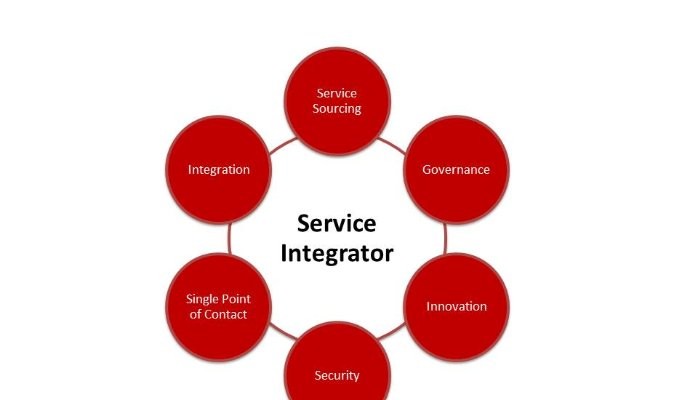Service Integrators Market: Comprehensive Overview
Market Overview
The service integrators market has witnessed substantial growth over the past decade, driven by the increasing need for seamless integration of diverse IT systems and business processes. Service integrators, also known as systems integrators, specialize in combining different subsystems into a single, cohesive, and efficient system that ensures smooth operations for businesses. As digital transformation accelerates across industries, the demand for service integrators continues to rise, making this market a crucial component of the global IT landscape. The Service Integrators market industry is exhibiting a compound annual growth rate (CAGR) of 7.0% during the forecast period (2024 - 2032).
Request To Free Sample of This Strategic Report - https://www.marketresearchfuture.com/sample_request/21575
Key Market Segments
The service integrators market is segmented based on services, end-user industries, organization size, and regions.
-
By Services:
- Consulting Services: These include strategic advice and planning to help organizations understand their integration needs and design effective solutions.
- System Integration Services: This involves the actual implementation of integration projects, including hardware and software integration.
- Managed Services: Ongoing management and optimization of integrated systems to ensure they continue to meet business requirements.
- Training and Support Services: Offering training for staff and ongoing support to address any issues that arise post-integration.
-
By End-User Industries:
- Banking, Financial Services, and Insurance (BFSI): Heavily reliant on seamless IT systems for transactions, security, and customer service.
- Healthcare: Requires integrated systems for patient records, billing, and telemedicine.
- Retail: Needs efficient integration of supply chain, inventory management, and customer relationship systems.
- Manufacturing: Integration of production processes, supply chain, and quality control systems.
- Government: Uses integrated systems for public services, data management, and security.
- Others: Including telecommunications, education, and energy sectors.
-
By Organization Size:
- Small and Medium Enterprises (SMEs): Seeking cost-effective and scalable integration solutions.
- Large Enterprises: Investing in complex and comprehensive integration projects to enhance operational efficiency.
-
By Regions:
- North America: A leading market due to advanced technology infrastructure and high adoption rates.
- Europe: Significant growth driven by digital transformation initiatives and regulatory requirements.
- Asia-Pacific: Rapidly expanding market with increasing investments in IT infrastructure.
- Latin America: Growing demand for integration services as economies develop.
- Middle East and Africa: Emerging market with potential growth due to modernization efforts.
Industry Latest News
-
Partnerships and Collaborations: Leading companies are forming strategic alliances to expand their service offerings and enhance their market presence. For example, recent collaborations between tech giants and service integrators are aimed at providing integrated solutions for cloud migration and digital transformation.
-
Technological Advancements: The integration of artificial intelligence (AI) and machine learning (ML) into integration services is a notable trend. These technologies are being used to optimize processes, predict maintenance needs, and enhance security.
-
Focus on Cybersecurity: As integration increases the complexity of IT systems, ensuring robust cybersecurity has become paramount. Companies are investing heavily in security measures to protect integrated systems from cyber threats.
-
Sustainability Initiatives: Service integrators are increasingly focusing on sustainable practices, including the development of energy-efficient systems and reducing the carbon footprint of IT operations.
-
Regulatory Changes: Changes in data protection regulations, such as GDPR in Europe, are impacting the service integrators market, driving the need for compliant integration solutions.
Key Companies
- Accenture: A global leader in providing consulting, technology, and outsourcing services, with a strong focus on system integration.
- IBM Corporation: Known for its advanced technology solutions, including AI and cloud services, IBM is a major player in the service integrators market.
- Tata Consultancy Services (TCS): Offers a wide range of IT services, including system integration, and has a strong presence in the global market.
- Capgemini: Provides consulting, technology, and outsourcing services, with a significant focus on digital transformation and system integration.
- Infosys: A leading IT services provider with a robust portfolio of integration services aimed at driving business transformation.
- Wipro: Specializes in system integration, consulting, and business process services, serving clients across various industries.
- DXC Technology: Formed from the merger of CSC and HPE's Enterprise Services segment, DXC offers a wide range of integration and managed services.
Market Drivers
- Digital Transformation: The ongoing digital transformation across industries is a major driver, as companies seek to integrate new technologies with existing systems to enhance efficiency and competitiveness.
- Increased Adoption of Cloud Services: The shift towards cloud computing necessitates integration of cloud services with on-premise systems, driving demand for service integrators.
- Complex IT Environments: As businesses grow and adopt various technologies, the complexity of IT environments increases, requiring specialized integration services to ensure seamless operations.
- Focus on Operational Efficiency: Companies are increasingly looking to optimize their operations and reduce costs, which can be achieved through effective system integration.
- Regulatory Compliance: Compliance with various regulations, especially related to data protection and cybersecurity, requires integrated systems that can ensure adherence to these standards.
Ask for Customization - https://www.marketresearchfuture.com/ask_for_customize/21575
Regional Insights
-
North America: This region dominates the service integrators market, driven by high technology adoption, a strong focus on digital transformation, and substantial investments in IT infrastructure. The presence of major technology companies and service integrators also contributes to the market's growth.
-
Europe: The European market is growing steadily, propelled by regulatory requirements such as GDPR, which mandate robust data integration and protection solutions. Countries like Germany, the UK, and France are leading in terms of market share.
-
Asia-Pacific: This region is experiencing rapid growth due to the increasing adoption of digital technologies, rising investments in IT infrastructure, and the presence of a large number of SMEs looking for scalable integration solutions. China, India, and Japan are key contributors to the market's expansion.
-
Latin America: The market in Latin America is growing as businesses in the region modernize their IT systems and seek integration solutions to enhance competitiveness. Brazil and Mexico are prominent markets within the region.
-
Middle East and Africa: Although this region is still emerging, there is significant potential for growth. Investments in IT infrastructure and modernization efforts by governments and businesses are driving the demand for service integrators.
Conclusion
The service integrators market is poised for significant growth, driven by the increasing complexity of IT environments, the need for digital transformation, and regulatory requirements. As businesses across various industries continue to invest in technology to enhance their operations, the demand for effective and efficient system integration solutions will continue to rise. With advancements in AI, ML, and cybersecurity, service integrators are well-equipped to meet the evolving needs of the market, ensuring robust and seamless integration of systems.



